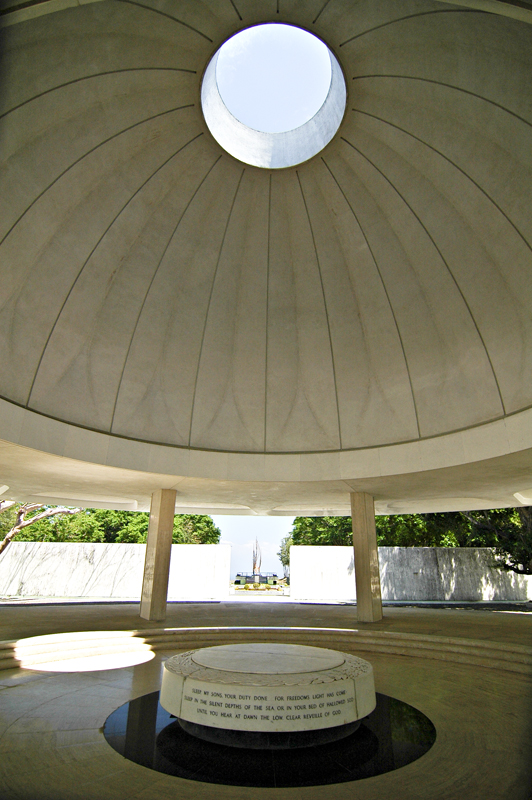Here's a bit of Corregidor history...
Espionage
In October 1940, U.S. Army Captain and Honors West Point graduate Rufo C. Romero was arrested and subsequently convicted of attempting to sell for $25,000 ($291,000 in 1999 dollars) classified maps of Bataan and Corregidor to an Army-concocted Mindanao Sultan with implied Japanese connections.
Japan's interest in Corregidor began long before its December 1941 invasion of the Philippines. In 1910 U.S. Army counterintelligence elements caught two members of the Japanese Consulate General staff in Manila attempting to bribe an Army soldier and German-born Manila resident with $25,000 to photograph Corregidor.
In another intriguing 1910 incident, a case of Corregidor fortification blueprints were stolen and found later on the streets of Calcutta. In 1912 a Filipino draughtsman in the Army's chief engineer's office stole a confidential map of Corregidor. He was arrested and sentenced to one year in jail and given a fine of $1,000 which was the maximum penalty then under American law.
A decade later blueprints of Corregidor's fortifications were again lost under suspicious circumstances. The investigation led to a Japanese agent. The papers were retrieved and little fanfare was given to this episode.
In September 1924 Private Frank Costa of the U.S. Army's 31st infantry Regiment (posted to Manila's old Spanish walled city) was charged with attempting to sell an Army map of Corregidor for one million pesos (US$500,000)."
"In October 1940, U.S. Army Captain and Honors West Point graduate Rufo Caingat Romero was arrested and subsequently convicted of attempting to sell for $25,000 ($291,000 in 1999 dollars) classified maps of Bataan and Corregidor to an Army-concocted Mindanao Sultan with implied Japanese connections. Romero, the regimental intelligence and topographic officer for the Philippine Scouts 14th Engineer Regiment, was cashiered and sentenced to 15 years in prison at McNeil Island penitentiary in Washington State.
Romero is the only U.S. Military Academy graduate to ever be tried and convicted on espionage charges. Romero's American wife - the former Lorraine Becker of Brooklyn, New York - was a battered spouse but also a witting collaborator in this aborted map selling effort. Mrs. Romero was never charged with a crime and subsequently survived the Japanese occupation of Manila and the destructive liberation of Manila in 1945."
"I would be interested in corresponding with anyone who possesses knowledge of any of the aforementioned espionage cases and particularly with anyone who knew Captain Romero and/or his American wife Lorraine as I am currently writing a history of this particular espionage case."
got this from here Historic Corregidor














